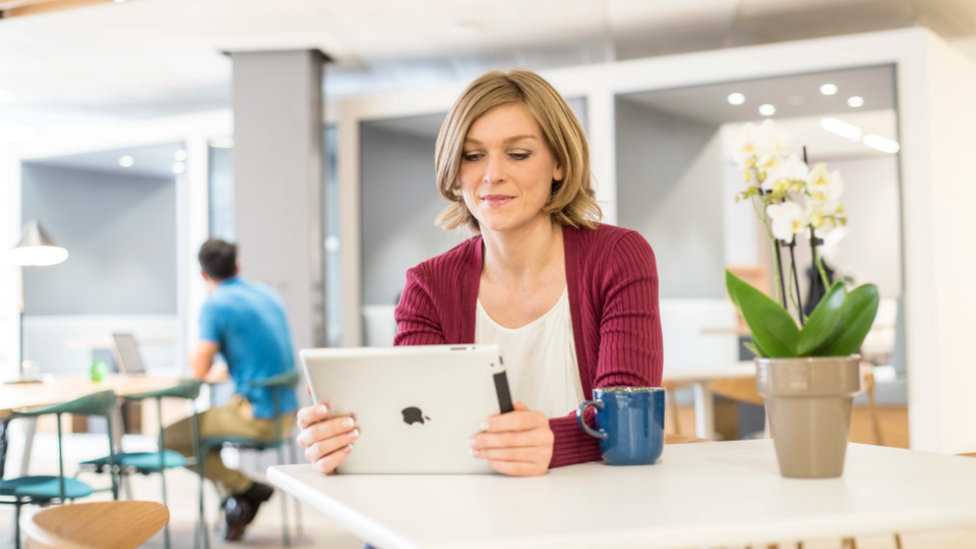Can a VR headset or pot plant boost productivity?
- Published
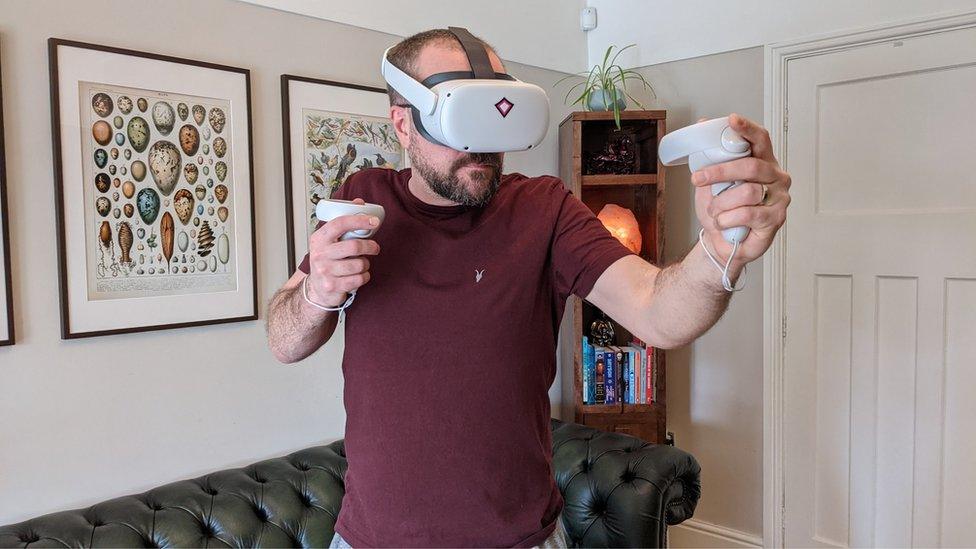
John Bevan enjoys rock climbing in virtual reality using a headset gifted by his employer
Working from home through the pandemic has been a challenge, but some UK firms have tried to lessen the pain by sending out free perks.
From Apple products to food hampers, gifts are being showered on some lucky staff as rewards for hard work.
But do corporate goodies actually help to boost productivity and job satisfaction?
It's long been known that if you get a job with a global tech giant like Google or Facebook, you're likely to enjoy workplace benefits like free food, pool tables, video games and social events. Job seekers will even compare companies based on the perks they offer when choosing where to apply.
The idea, which originated in the US, is that if staff spend more time in the workplace, even if they're having fun, they will be more likely to do more work.
That Silicon Valley-style thinking spread to tech firms across the pond, but during the pandemic, other industries have started to look offering at non-monetary benefits too.
To thank them for their hard work under difficult circumstances, employees at investment bank Jefferies were recently told they could choose from a reward of a Peloton exercise bike, or an "Apple package" consisting of an Apple Watch, and iPad Air and AirPods Plus.
Others have offered everything from tea bags, biscuits and Easter eggs, to virtual reality headsets, takeaway app gift vouchers and subscriptions to meditation apps.
'It's definitely boosted my morale'
John Bevan is a consultant at BrightCarbon, a Manchester-based design agency that specialises in creating e-learning content.
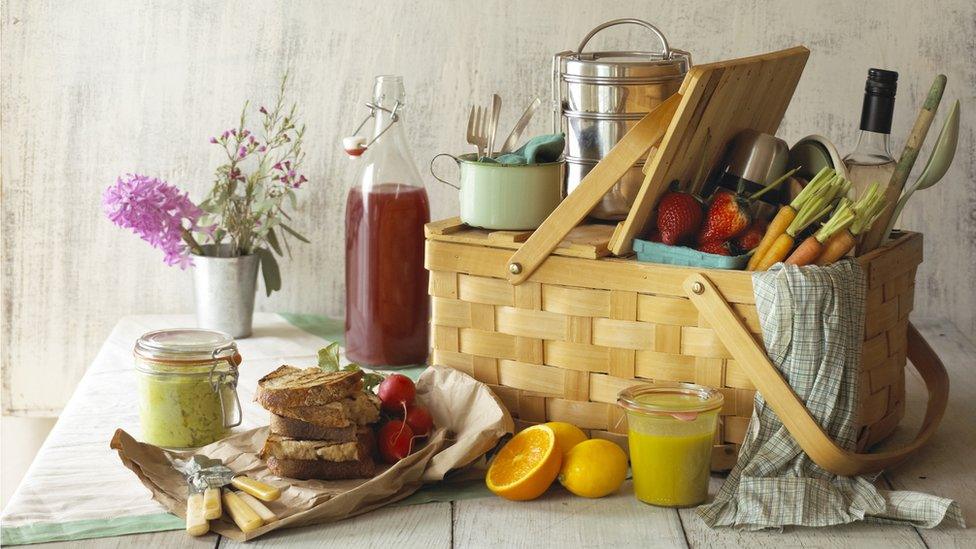
Firms big and small have told the BBC they are sending staff food hampers
Through the pandemic, the firm has sent out surveys every fortnight asking staff how they feel. One question asked was whether staff had an interest in virtual reality (VR) - a technology the agency was thinking about implementing in its work.
All the staff who expressed an interest were sent Oculus Quest 2 headsets to play with, and today, almost all 80 employees at the company have one.
BrightCarbon's staff have been holding virtual social events to help each other cope mentally through lockdowns, from VR rock climbing and archery to dancing games, fitness and fishing trips.
"It's absolutely boosted my morale and my family's and all of my team's as well," Mr Bevan tells the BBC.
"It really has connected people with others in the business they don't talk to."
And as a bonus, the agency has been able to use what it has learned from employees' interactions to help design new offerings for its clients.
'The company really does care for me'
Jordan Roe is a client manager at Cheshire-based financial planners Equilibrium, which has just under 100 staff.

Since the pandemic began, the company has been sending him potted plants, seeds for growing herbs, handwritten cards containing motivational messages, positivity pin badges and a variety of food, as well as putting on after work activities like pub quizzes and bingo on Zoom.
Equilibrium even has an annual tradition of treating its staff to fish and chips on Blue Monday - a day in January reputed to be the most depressing of the year (although there is no scientific basis to this).
Because staff were working from home this year, the firm sent over custom-made fish and chip boxes, with the meal wrapped in "The Equilibrium Times", a made-up company newspaper detailing staff achievements and jokes.
"It made a difference - it reinforced the fact that the company really does care for you and you still feel connected to your team, even though you're by yourself," says Mr Roe, who has worked for Equilibrium for three years.
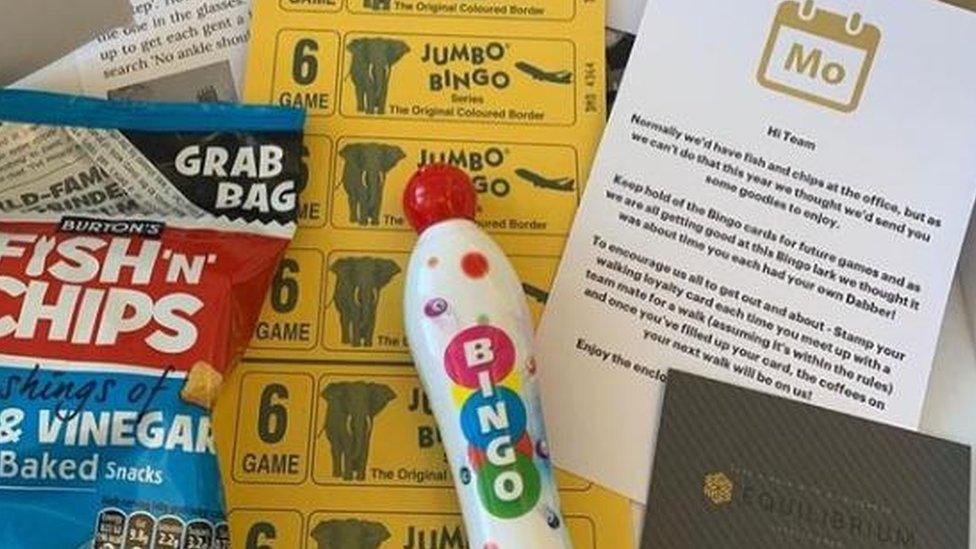
Items in a fish and chips-themed goodie box from Equilibrium to their staff
"It was a main driver for me in coming to work here - it was the company's culture, and its reputation with both staff and clients."
Is this really what employees need?
But regardless of gifts big or small, new research shows that staff are often quite happy to motivate themselves.
The Chartered Institute of Personnel and Development (CIPD) says productivity increases, not decreases when working from home.
The body, which represents HR professionals, surveyed 2,000 employers and found that two thirds believe remote working has either improved productivity, or hasn't negatively impacted it.
"The evidence between productivity and gifts is patchy," Charles Cotton, the CIPD's senior reward and performance adviser tells the BBC.
"Whilst there can be some short term boost to commitment and loyalty, over the medium to longer term, that feeling can dissipate, unless the gift is particularly memorable."
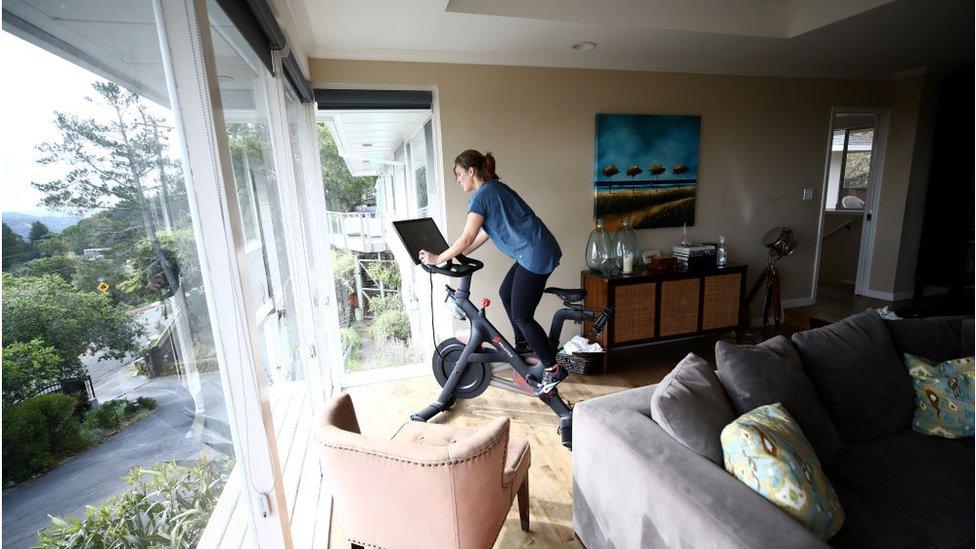
Jefferies has been gifting staff peloton bikes as a pandemic "bonus"
He points out that some of the perks are a "one size fits all" - food hampers might not be suitable for someone with a food intolerance, so employers need to make sure they cater to employees' needs when considering such gifts.
But most of all, the CIPD says the research highlights the fact that there is no longer such a taboo around flexible working.
The survey showed 63% of employers are planning to expand their use of flexible working arrangements going forward.
Mr Cotton thinks that after the pandemic, a "win-win scenario" could emerge for both employers and employees.
"It is unlikely that employers will be looking to flog off their buildings because they will still need them for some days of the week, but it's also unlikely that everyone will be working Monday to Friday in the office.
"There's a balance to be struck between the two extremes - it's a case of allowing employees the flexibility and responsibility of managing themselves."
- Published21 July 2020
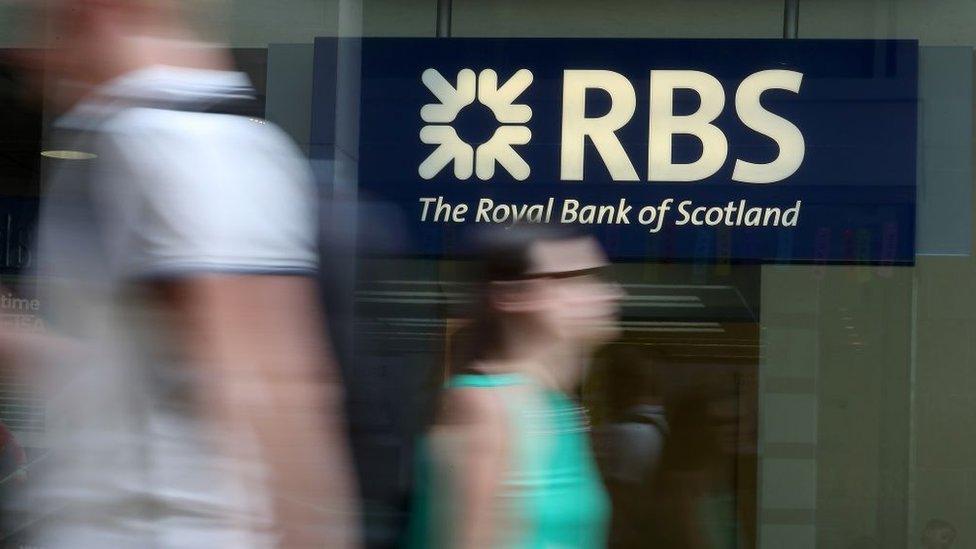
- Published31 March 2021
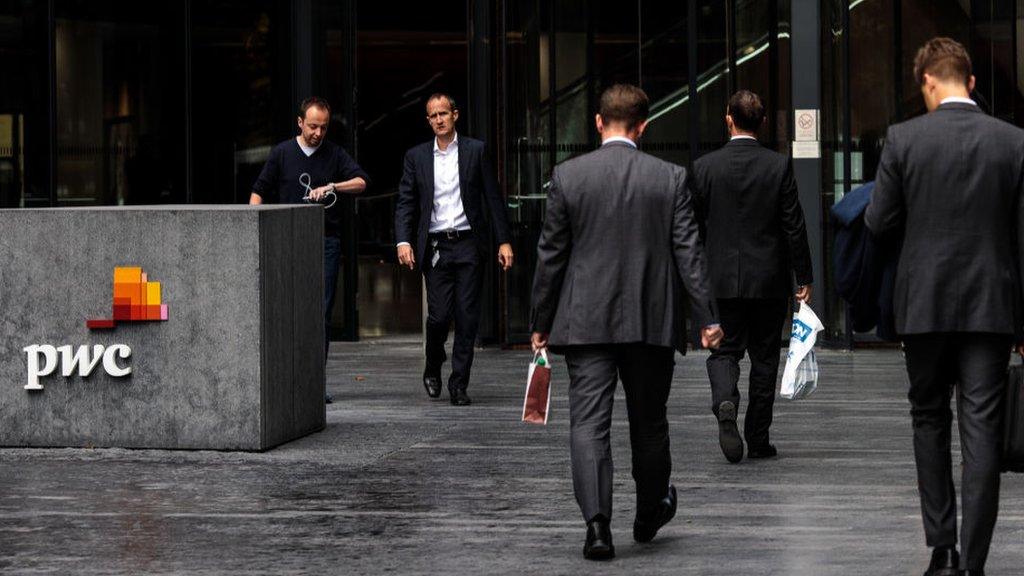
- Published9 March 2021
